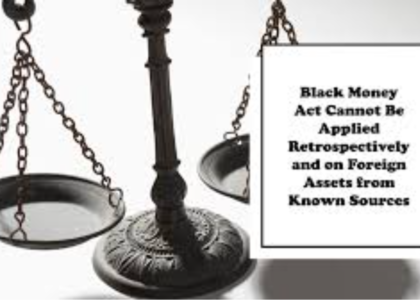Dear Readers,
I hope you are in good health and high spirits!
This article highlights the ITAT’s ruling that the assessment orders for AY 2018-19 were invalid due to the Assessing Officer’s lack of valid jurisdiction in assessing undisclosed assets and income under the Black Money Act.
I would like to reiterate here that that taxpayers should ensure timely and accurate disclosures of foreign assets to avoid complications under the Black Money Act, as seen in this case. Additionally, it is crucial to understand the implications of notices and the importance of valid jurisdiction for tax assessments.
We trust that you will be enriched by reading this article.
Regards,
Samir Mahajan
The Authority Dilemma: ITAT’s Pivotal Decision on Tax Jurisdiction
The Mumbai Income Tax Appellate Tribunal (ITAT) has ruled that the assessment orders for the assessment year (AY) 2018-19 are invalid due to the Assessing Officer’s (AO) lack of proper authority to assess undisclosed assets and income. This decision stems from a detailed examination of the Black Money Act, 2015 (BMA) and a related CBDT Circular.
The BMA was enacted to combat the issue of black money and to impose stringent measures for the disclosure of undisclosed foreign assets. Key provisions of the BMA include Section 3, which defines the scope of undisclosed assets, and Section 59, which allows for voluntary disclosure of such assets. Additionally, Section 72(c) provides a framework for assessing undisclosed assets acquired before the commencement of the Act, stating that if such assets have not been declared, they can be deemed income in the year they come to the notice of the AO.
The ITAT noted that the foreign assets in question were acquired by the assessee before the BMA came into effect, and no voluntary declarations were made under Section 59 of the BMA. Consequently, the provisions of Section 72(c) apply to these cases. The ITAT emphasized that the assessment year for these foreign assets should be determined based on the date when the notice was issued under Section 10(1) of the BMA. According to the proviso to Section 3(1) of the BMA, undisclosed assets located outside India are taxable based on their value in the previous year when the AO becomes aware of the asset.
The first notice under Section 10(1) was issued on August 7, 2017, for AY 2017-18. However, no assessment order was made for that year, and the AO subsequently issued an assessment order for AY 2018-19. The Commissioner of Income Tax (Appeals) (CIT(A)) pointed out that the notice dated August 7, 2018 ,was effectively withdrawn by the AO which, and this decision was not challenged by the Revenue, means it has become final.
The ITAT highlighted inconsistencies in the AO’s actions, noting that the assessment order contradicted the earlier notice. The Revenue could not rely on the August 7, 2017 notice since it pertained to a different assessment year and had been withdrawn. Furthermore, the ITAT dismissed the Revenue’s arguments, citing various court decisions that indicate the protections under Section 81 of the BMA do not cover significant flaws in the assessment process.
Additionally, the AO issued further notices under Section 10(1) on July 10, 2018, and November 9, 2018, which could have been used to frame an assessment order for AY 2019-20 based on the provisions of Section 72(c).
In the context of the Income Tax Act, it is important to note that Section 147 allows the AO to reopen assessments if they have reason to believe that income has escaped assessment. However, this must be done within a specified time frame and with valid grounds. The ITAT’s ruling underscores the necessity for the AO to follow due process and adhere to the provisions of the law when assessing undisclosed income and assets.
In conclusion, the ITAT canceled the assessment orders for AY 2018-19, stating that the Assessing Officer lacked the proper authority to assess the undisclosed assets and income for that year. This case highlights the importance of following legal procedures set by the Income Tax Act and the Black Money Act to ensure fair tax assessments. The ruling emphasizes that tax authorities must act within the law to protect taxpayers’ rights and ensure they are treated fairly.
Therefore, taxpayers and tax professionals should prioritize maintaining accurate records of foreign assets and income to ensure compliance with the Black Money Act and the Income Tax Act. Staying informed about the timelines and procedural requirements in Sections 10(1) and 147 is crucial, as is responding promptly to any notices from tax authorities. Engaging a qualified tax advisor can provide valuable guidance in navigating these complex regulations. By taking these proactive steps, taxpayers can better protect their interests and ensure adherence to the legal framework governing taxation in India.





